Timeline

Sociotechnical Systems to Enable Smart and Connected Energy-Aware Residential Communities
Project Vision

- 3-year smart home project with community partners (IHCDA, BWI, Purdue)
- A major student for idea development, figure works, and proposal writing assistance.
- Project management role such as sensor procurement, meeting arrangement, communication between multiple partners/students/faculties.
Field Data Collection
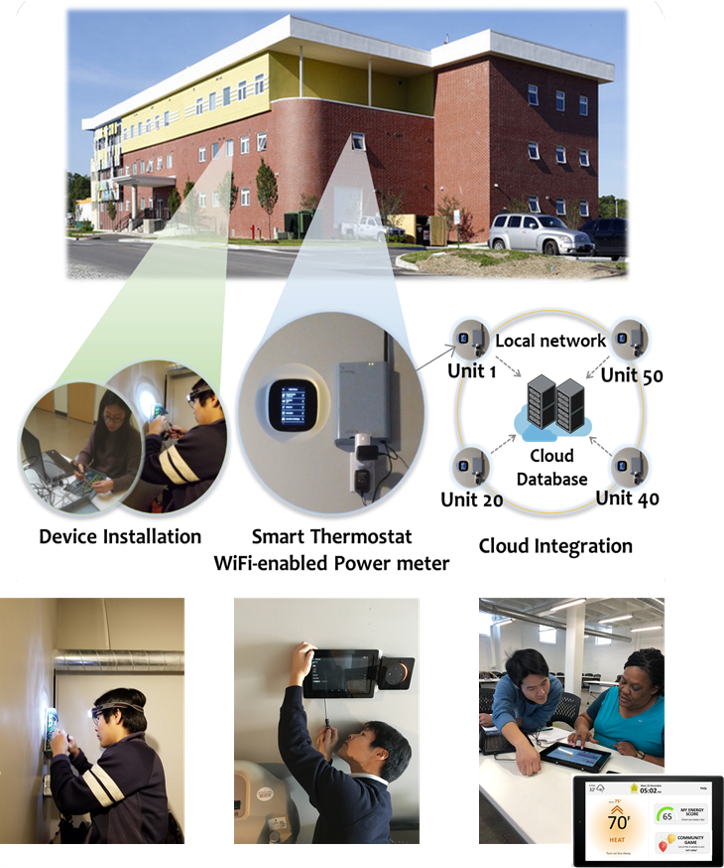
- Prototyping and choosing WiFi-based thermostats and circuit-level power sensors and their data collection to a database.
- Installation and trouble shooting of sensors for 50 residential units located in Indianapolis, IN.
- Documentation of data communication and database schema to work with software developers to accommodate multiple sensors communication in real-time.
- Development of R (Shiny) and HTML based interactive data analytics tool for time-series data (for internal-use).
- Procurement/installation/design of Tablet/Smart speaker for smart home interface (SmartE) with research team.
Data-driven Building Energy Normalization
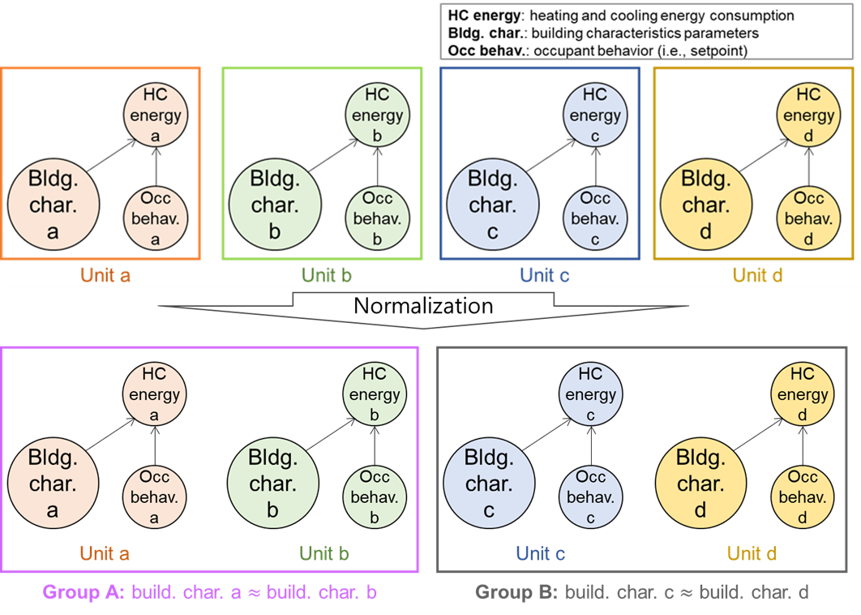
- “A data-driven building energy normalization model for eco-feedback design in smart and connected multi-family residential buildings.”
- Energy comparison of residential units in a multi-family residential building as an eco-feedback.
- Normalized groups by considering inter-unit heat transfer and unobserved disturbances.
- Fair comparison of the impact of thermostat behavior on heating/cooling energy consumption.
- Online model update via Bayesian inference to be used for eco-feedback application.
- Conference paper: PURDUE 2018.
Online Model for Unit-level Heating and Cooling Energy Predicition
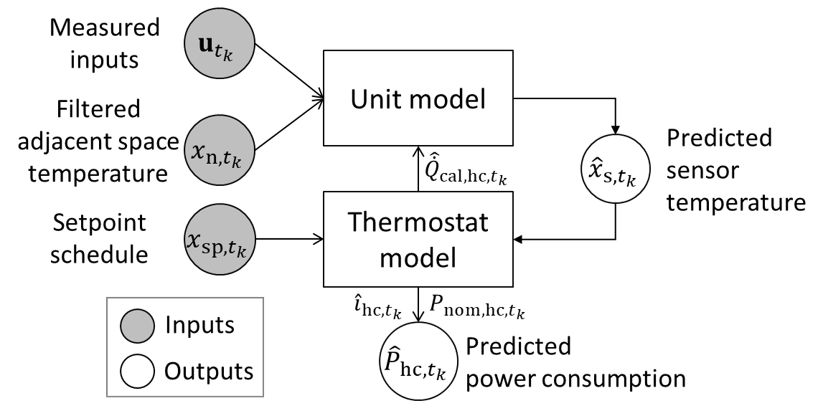
- “Online building energy model to evaluate heating and cooling-related behavior changes for eco-feedback in a multifamily residential building.”
- Unit-level heating and cooling energy prediction model for actionable eco-feedback design a multi-family residential building.
- A single zone gray-box model from thermostat and heat pump power measurement only.
- Online parameter learning with state filtering to be used without a whole year dataset in Bayesian framework.
- Conference paper: IBPSA 2019.
Scalable Building Energy Model using Probabilistic Deep learning

- “A Scalable Building Modeling Approach using Probabilistic Deep learning (tentative).”
- A household-level heating and cooling energy prediction model using Deep neural network.
- Overcoming the limitation of black-box model through Bayesian update with pre-trained model to be used any types of residential unit.
- Generation of multiple simulated data (EnergyPlus) with stochastic noise (Python EnergyPlus plugin) through Eppy package.
- Solving probabilistic deep learning model by using Pyro and Pytorch.
- In preparation.
Liquid desiccant and dew point evaporative cooling based 100% outdoor air system

- Annual energy simulation for liquid-desiccant and dew point evaporative cooling based 100% outdoor system.
- Implementation of PI controller, empirical liquid desiccant and dew point evaporative cooling model in a BCVTB co-simulation framework with EnergyPlus to test a new control algorithm (variable air volume and temperature control).
- Development of a data-driven empirical model of PEM fuel cell system to be used for LDEOS system as a cogeneration application.
- Conference paper: ASHRAE 2016.
- Journal papers: ENB 2016 ENB 2015.
Indirect evaporative cooler modeling and test chamber design
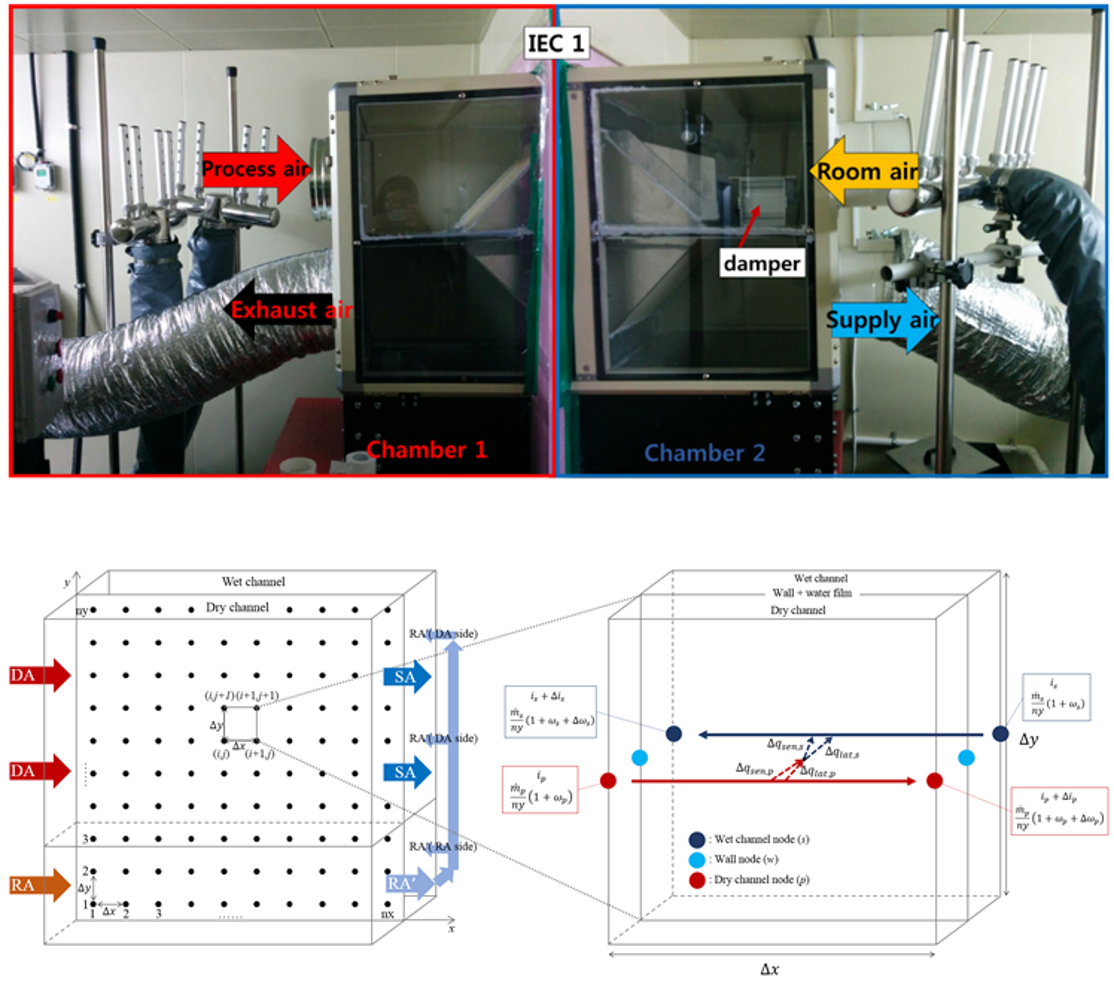
- Design of environmental chamber to test the performance of indirect evaporative cooler.
- Installation of sensors and data collection platform on PLC-based SCADA machine including wet-bulb temperature, airflow chamber.
- Design/installation of indirect evaporative cooler with a manufacturing company.
- A numerical model of indirect evaporative cooler by using finite difference method to design the prototype.
- Journal papers: ENERGY 2016, APEN 2017
Data Center Cooling
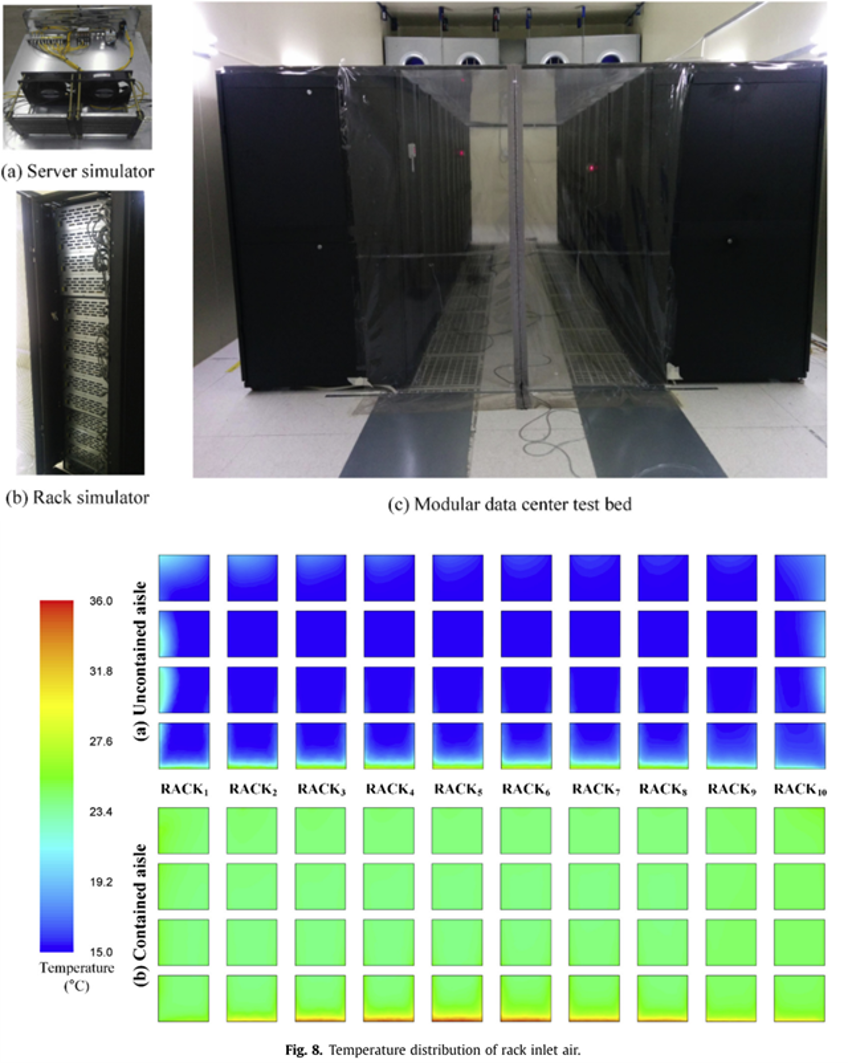
- Development various air-side economizers and their annual energy simulation model for data center cooling application.
- Development of a simplified server model that can be used for data center cooling energy simulation.
- Estimating the impact of air containment in a modular data center through one-to-one scale test bed experiment and CFD simulation.
- Development of excel VBA-based tool to estimate rough annual energy consumption of data center cooling for practical use.
- Journal papers: APEN 2015, ATE 2015, ENB 2015, ATE 2016.








